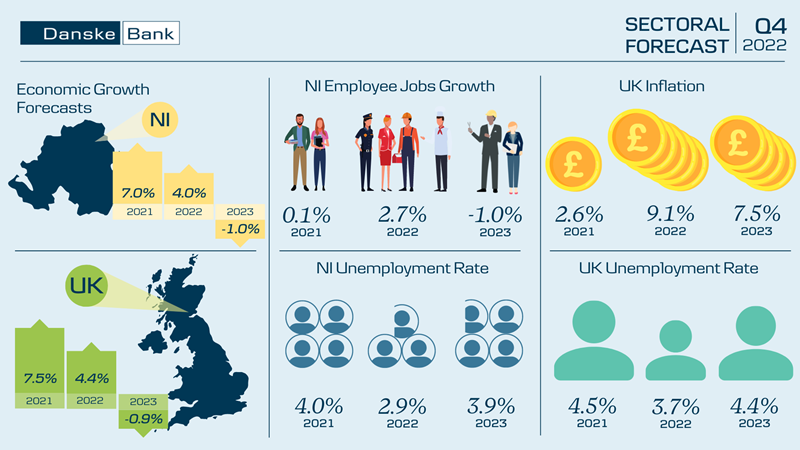High inflation, low consumer confidence and tighter monetary policy means NI is likely to experience a recession
The UK economy contracted in the third quarter of 2022 and we think that economic activity in Northern Ireland is also likely to have declined. Output is then projected to fall further in the final quarter of the year and through most of next year with both economies experiencing a period of recession as a number of factors adversely impact activity levels. Inflation is expected to decline gradually during 2023 but remain elevated and weigh down on household purchasing power. Consumer confidence is also particularly low and monetary policy is tightening. We expect the Northern Ireland economy to grow by around 4.0% in 2022, which reflects an element of recovery from the pandemic. Looking forward, and while noting the considerable uncertainty around the outlook, we are forecasting that output in Northern Ireland will contract by about 1.0% in 2023.
Despite the economic challenges and the high uncertainty levels, Northern Ireland’s employment data has been relatively robust for most of this year and, as such, we are forecasting that the annual average number of employee jobs will increase by around 2.7% in 2022. However, the momentum in the labour market appears to be slowing as we head into 2023. With annual economic output expected to decline next year, we are projecting that the average number of jobs will fall by around 1.0% in 2023. We are also forecasting that unemployment in Northern Ireland will average around 2.9% in 2022, before increasing to an annual average of 3.9% in 2023 as employment levels decline.


